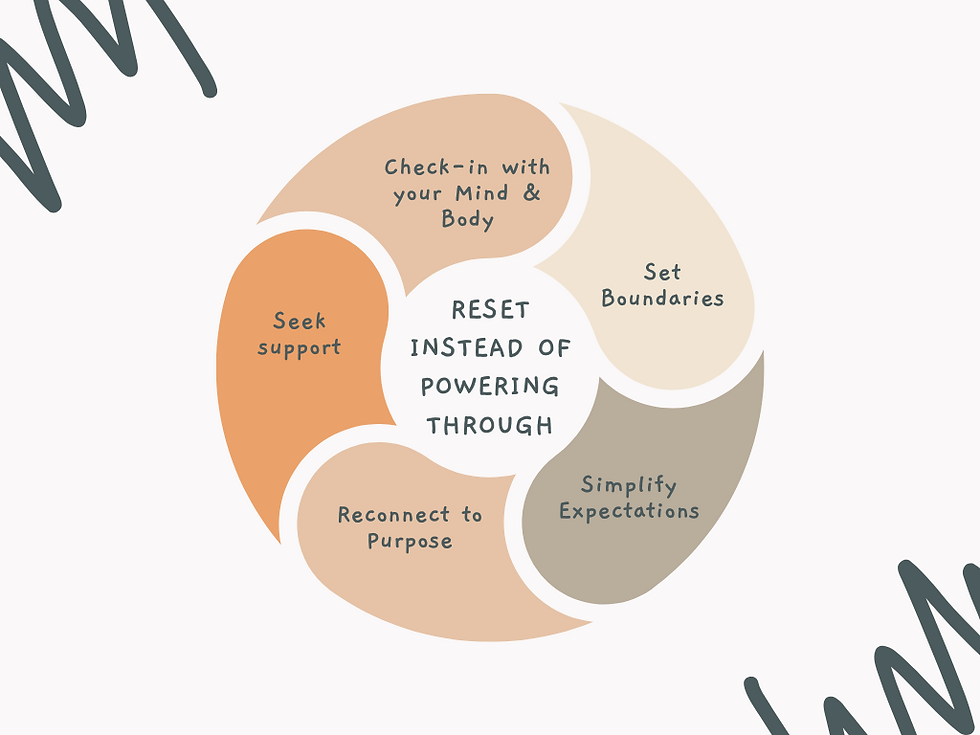Obsessive Compulsive Disorder
- endurancementalhea
- Jun 16, 2023
- 3 min read
Obsessive Compulsive Disorder (OCD) is a clinical condition that is closely
related to anxiety disorders. It is characterized by obsessions and/or compulsions that
affect your daily life. Obsessions are defined as recurrent or persistent thoughts,
urges, or images that are unwanted and intrusive in nature. Compulsions are
repetitive behaviors or mental acts that the person performs in response to the
obsession. The obsessions and compulsions are time consuming and affect the persons
quality of life. Here are some examples of obsessions and compulsions, though both
can express themselves in ways not specifically listed:
Obsessions:
- Fear of germs or contamination
- Fear of harming self or others
- Intrusive thoughts that are “forbidden” such as thoughts of losing control,
religious content, sex, or harming others
- Obsessions with orderliness/patterns/symmetry
Compulsions:
- Excessive cleaning or handwashing
- Counting
- Ordering or rearranging things
- Excessive praying/mental acts
- Repetitive checking on things
Who can be affected?
OCD can affect both men and women. Studies have shown that men are more
likely to exhibit symptoms in childhood and women may develop symptoms more
commonly in young adulthood. There are no socioeconomic differences in those
whom are affected. Those who have first degree relatives with OCD are at higher risk
for developing this condition. The environment in which a child is raised in can also
affect OCD progression. Studies have shown that children who experience trauma are
at higher risk of developing OCD. In some cases, children who have had a streptococcal infection may develop OCD symptoms. This condition is called Pediatric Autoimmune Neuropsychiatric Disorder (PANDAS).
What does it look like?

The person with OCD may have very ridged routines. They may spend an excessive amount of time (greater than 1 hour per day) on these thoughts and behaviors. People with this condition are unable to control these thoughts and behaviors even though they may recognize that they are excessive. T he typical OCD
cycle starts with an obsessive thought which causes the person severe anxiety. To
decrease anxiety, the person will them perform a compulsive behavior which can illicit
some temporary relief from the anxious thoughts. This cycle will continue to repeat
itself causing the individual problems in their social, occupational, and personal lives.
The person with OCD may also have a Tic Disorder. Motor Tics are characterized by
sudden, repetitive movements of the eyes, face, shoulders, neck, or vocal cords.
Common tics include clearing of the throat, repetitive blinking, shrugging of the
shoulders, and more.
How is it treated?
The most effective treatment for obsessive compulsive disorder is therapy,
medication, or a combination of the two. The two types of therapy that have the most
evidence to support effective treatment include Cognitive Behavioral Therapy (CBT)
and a subtype of CBT called Exposure and Response Prevention (ERP) therapy. ERP
therapy is a modality that is specific to OCD. The medications that are most commonly
used for OCD are a class of medications called Selective Serotonin Reuptake Inhibitors
(SSRI). These medications are prescribed at much higher doses than they would be if
they were treating other conditions, such as anxiety or depression. As with any mental
health condition, treatment should be tailored to your specific needs while using
evidence-based research to guide decision making.
How can we help?
At Endurance Mental Health, we have a passion for helping individuals who
suffer with symptoms of obsessive-compulsive disorder. We are continually staying up
to date on new and emerging evidence to treat this condition. We are also intentional
about finding other providers and therapists in our area who treat this condition
effectively to promote collaboration and improve patient outcomes. At Endurance
Mental Health, we provide the initial psychiatric assessment and clarify your mental
health diagnosis. From there, we find the right type of therapy for your condition and
prescribe and continuously monitor your medications to promote the most effective
recovery.
For more information, call (317)- 669- 9774 or visit www.Endurancementalhealth.com today.



